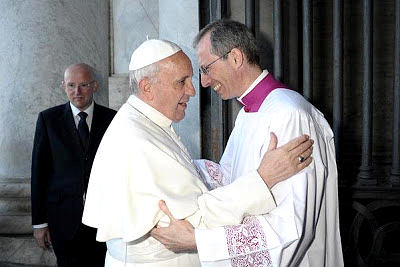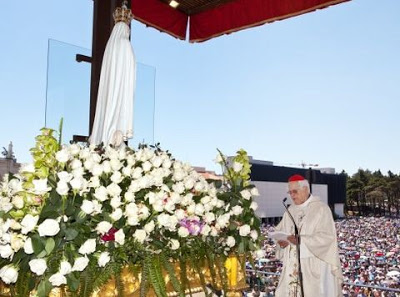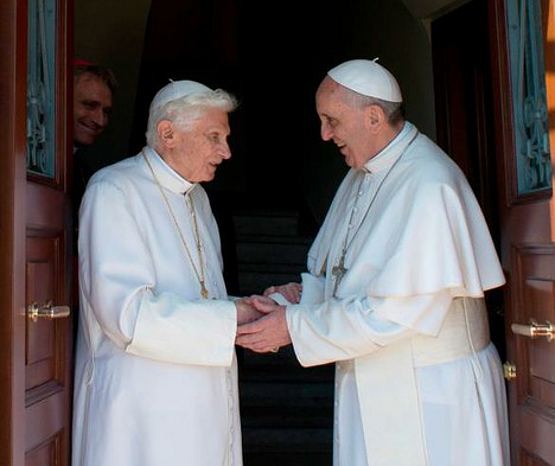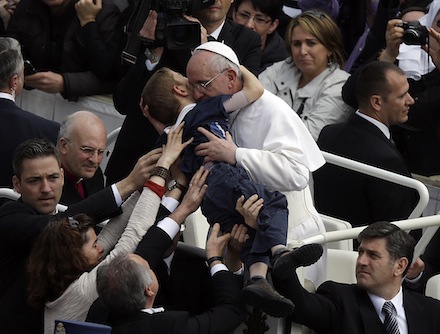Pave Benedikt fjernet mange hundre prester som var overgripere
Dagbladet skrev om dette i går, og den kjente katolske reporteren John Allen skriver også grundig om dette:
Facing a virtually unprecedented examination of its record on child sexual abuse by a U.N. panel, a senior Vatican official today asserted that the Catholic church wants to be «an example of best practice» in the prevention of abuse.
Italian Archbishop Silvano Tomasi, the Vatican’s representative to the United Nations in Geneva, spoke this morning to the Committee on the Convention of the Rights of the Child, a 1989 United Nations treaty which the Vatican ratified in 1990.Although the U.N. panel has no power to compel the Vatican to do anything, its body of experts is expected to make recommendations after the day-long hearing. In effect, today marks the first time senior Vatican officials have appeared before an independent body to defend the church’s handling of the abuse scandals that have erupted over the past decade.
The seriousness with which the Vatican is taking the process is reflected in the fact that it dispatched not only Tomasi but also Maltese Bishop Charles Scicluna, who served for ten years as the Vatican’s top sex abuse prosecutor and is widely seen as a leading reformer. … …
Pave Benedikt har vært en veldig viktig peerson mht at overgriperne skal stoppes og straffes, og dette uttrykkes bl.a. slik:
An AP review of the reference books shows a remarkable evolution in the Holy See’s in-house procedures to discipline pedophiles since 2001, when the Vatican ordered bishops to send cases of all credibly accused priests to Rome for review.
Then-Cardinal Joseph Ratzinger took action after determining that bishops around the world weren’t following church law to put accused clerics on trial in church tribunals. Bishops routinely moved problem priests from parish to parish rather than subject them to canonical trials — or turn them into police. … …
… According to the 2001 norms Ratzinger pushed through, the Congregation for the Doctrine of the Faith reviews each case sent to Rome and then instructs bishops how to proceed, either by launching an administrative process against the priest if the evidence is overwhelming or a church trial. At every step of the way the priest is allowed to defend himself. …

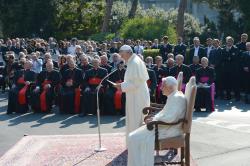 Fredag morgen velsignet pave Frans en ny statue av erkeengelen Mikael i Vatikanets hage, og samtidig innviet han Vatikanstaten til den hellige Josef. Her er slutten av hans korte tale:
Fredag morgen velsignet pave Frans en ny statue av erkeengelen Mikael i Vatikanets hage, og samtidig innviet han Vatikanstaten til den hellige Josef. Her er slutten av hans korte tale: